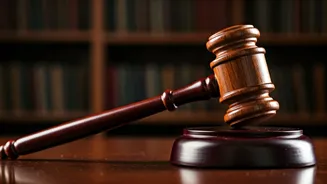Clarity & Conciseness
The initial skill highlighted is the ability to communicate clearly and concisely. Young lawyers should practice the art of conveying complex legal information
in a straightforward manner. This involves stripping away jargon and using precise language. It is essential to organize thoughts logically before speaking and to focus on the most critical points. Brevity is key; the aim is to deliver the message efficiently, ensuring the audience grasps the core arguments without getting lost in unnecessary details. Practicing this skill improves the ability to persuade during trials and client interactions. Lawyers should focus on streamlining arguments to get their point across effectively.
Voice Projection & Pace
The second critical skill is effectively managing voice projection and pace during a presentation. Young lawyers are advised to vary their vocal delivery to keep their audience engaged. This includes modulating the volume to emphasize key points and varying the pace to maintain the listener's interest. Pauses can be strategically used to create suspense or allow the audience to absorb important information. Regular practice, such as recording oneself or practicing in front of a mirror, helps lawyers become more aware of their delivery style. By mastering these elements, young lawyers can make their presentations more persuasive and keep their audience's attention throughout.
Body Language Mastery
Developing strong body language skills is the third component of effective public speaking. It is critical for young lawyers to understand that non-verbal cues significantly impact how a message is received. The article suggests focusing on maintaining eye contact, using gestures naturally, and maintaining an open posture. Eye contact helps build rapport and trust with the audience. Natural gestures and an open stance convey confidence and approachability. The recommendation encourages practicing in front of a mirror to become aware of and refine body language, which can significantly enhance the impact of any legal presentation. Good body language can make a lawyer seem credible and confident.
Active Listening Skills
The article suggests that active listening is another vital skill, highlighting that effective communication is a two-way street. Young lawyers should be skilled at truly listening to what others are saying, both verbally and non-verbally. This involves giving full attention, asking clarifying questions, and providing appropriate feedback. By actively listening, lawyers can better understand their clients' needs, counter opposing arguments effectively, and build stronger relationships. Practicing active listening involves being fully present in the moment and responding thoughtfully to what is being said. By honing this skill, young lawyers can significantly improve their ability to advocate for their clients and negotiate effectively in court.
Rhetorical Devices Usage
Young lawyers should get familiar with employing rhetorical devices to make their presentations more persuasive. The article explains how to use techniques such as metaphors, similes, and storytelling to connect with the audience on a deeper level. Metaphors and similes can simplify complicated concepts, while storytelling helps create a narrative that is easier to remember and more emotionally engaging. This strategy is also suggested to practice using these devices to effectively highlight key points, making the presentation more convincing. Rhetorical devices add a layer of engagement, making the arguments more compelling and memorable. Lawyers can better influence their audiences by incorporating these persuasive elements.
Handling Q&A Sessions
The final crucial skill centers on effectively managing Q&A sessions. Young lawyers should be prepared to answer questions confidently and concisely, even if they are caught off guard. This includes the ability to summarize key points and provide clear answers. The advice also suggests lawyers anticipate potential questions, formulate clear and concise responses, and practice answering them. This preparation helps to build confidence and ensures they remain composed under pressure. It also involves acknowledging questions respectfully, seeking clarification when needed, and providing well-thought-out, concise answers. Mastering the art of managing Q&A sessions enhances the lawyer's credibility and ability to manage public perception.




















